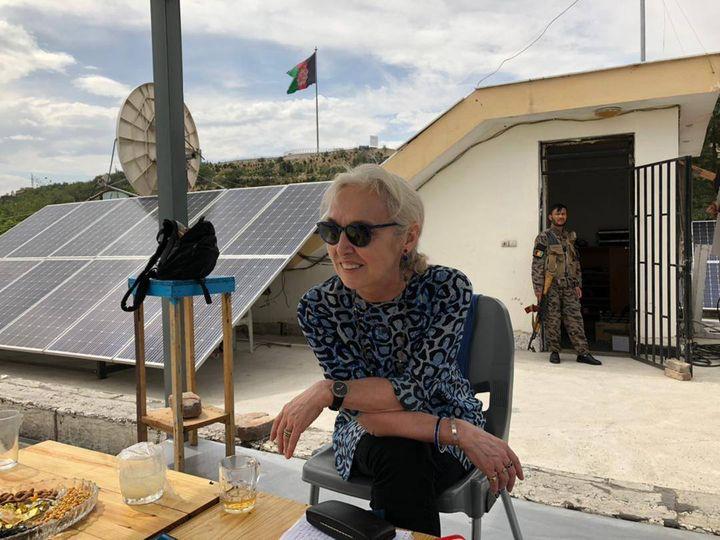Washington, D.C., July 21, 2022 – Taliban authorities must stop harassing members of the press, and the intelligence officers who recently intimidated and threatened Australian journalist Lynne O’Donnell should be held to account, the Committee to Protect Journalists said Thursday.
O’Donnell, a columnist with the U.S. magazine Foreign Policy, arrived in Kabul on July 16, the journalist told CPJ in a phone interview. The following day, she visited the Taliban government’s Ministry of Foreign Affairs to register as a foreign journalist, but told CPJ that ministry spokesperson Abdul Qahar Balkhi refused to grant her registration, saying that her 2021 reporting on women and girls forced to marry Taliban commanders was inaccurate. Balkhi told O’Donnell that she would be contacted by intelligence officials and would be required to leave the country, she said.
On the evening of July 17, O’Donnell received a phone call from an intelligence agent who introduced himself as Ahmad Zahir, and asked her to submit to questioning by the General Directorate of Intelligence; O’Donnell initially refused, but Zahir called her back on July 19 and said she would be barred from leaving the country unless she met with the intelligence agency, she told CPJ.
On July 19, Zahir and three other intelligence agents met O’Donnell at her guest house and brought her to the GDI office in the Shashdarak area of Kabul where, over the course of four hours, intelligence officers threatened her with prison time unless she tweeted apologies for her 2021 reporting, according to the journalist and a report by the independent broadcaster Afghanistan International.
O’Donnell posted those apologies on her personal Twitter account, and left Afghanistan for Pakistan the following day, she told CPJ.
“The Taliban must stop their campaign of intimidation and abuse targeting Afghan and international journalists, and the GDI intelligence agency should be held accountable for agents’ harassment and detentions of members of the press,” said Carlos Martinez de la Serna, CPJ’s program director, in Madrid. “The Taliban should apologize to Lynne O’Donnell for her treatment in the country, and allow all journalists work free from fear.”
In her July 17 meeting with Balkhi, the foreign ministry spokesperson pressured O’Donnell to provide information about the sourcing for her 2021 reporting, which she refused, she said.
Balkhi also said he was proud of the Taliban’s 2016 attacks on reporters for the Afghan broadcaster TOLONews after the outlet covered alleged sexual assaults by Taliban members, which O’Donnell said she interpreted as a threat.
In her tweets renouncing her reporting, which CPJ reviewed, O’Donnell said her coverage was a “premeditated attempt at character assassination and an affront to Afghan culture” and her articles were “written without any solid proof or basis.” She subsequently tweeted that those messages had been dictated to her by intelligence officials.
On Thursday, Balkhi tweeted a statement alleging that O’Donnell had “offered to rectify the situation by tweeting an apology” and said that the Taliban “remains committed to the principles of Freedom of Press.” CPJ contacted Balkhi via Twitter for comment but did not receive any response.
In a column for Foreign Policy about her detention, O’Donnell wrote that she was also forced to record a video confession renouncing her reporting.
Separately, O’Donnell told CPJ that GDI agents had detained two people whom she’d spoken with in Afghanistan, leading her to believe that she had been surveilled while in Kabul.
CPJ has documented the increasingly prominent role of the GDI in controlling the news media and intimidating Afghanistan journalists.
CPJ contacted Zabihullah Mujahid, a Taliban spokesperson, for comment via messaging app but did not receive any response. CPJ was unable to find contact information for Zahir or for a representative of the GDI.
